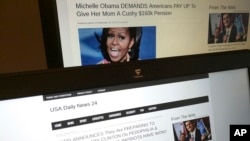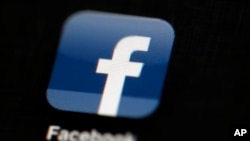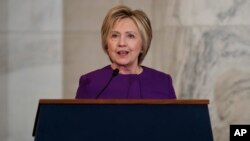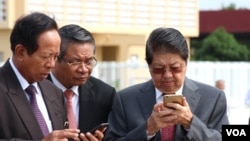In October, a few days after the Washington Post released a story on how Donald Trump boasted about groping a married woman, Michelle Obama, the wife to President of the United States Barack Obama, gave a speech and appealed to young Democratic Party supporters to take to social media to help appeal for votes.
“Either Hillary Clinton or her opponent will be elected president this year, and if you vote for someone other than Hillary or you don’t vote at all then you are helping to elect her opponent,” she said.
“And young people and not so young people get on social media, share your own story of why this election matters,” she said.
Her words were not going to waste.
Amy Depala, a university student studying English literature at California State University in Long Beach, took Obama’s advice seriously.
“I posted calls for my friends and the people who are my friends to vote and also to support the Democratic party, and I talk a lot about how dangerous Trump is to America,” she said, adding that she supported the Democrats for number of reasons.
Social media such as Facebook and Twitter have become key battlegrounds in elections and a forum for debate and propaganda. Experts have warned of the potential negative impacts of the social media boom.
Twenty percent of social media users say that they modified their stance on social and political issues after seeing material on social media, while 17 percent say that social media has helped them change their views about a specific political candidate.
The same research also found that more than one-third of social media users are worn out by the amount of political content they encounter.
A fifth said they like to see political posts and discuss on social media.
Ed Horowitz, associate professor of communications at Cleveland State University, said Barack Obama had won the 2008 election in part because he had been able to mobilize support on social media.
“He was very appealing to young voters as a first African-American black candidate,” he said. “Young voters like that idea.They are more open minded than older people in America, so he knew they were using Facebook, so he uses Facebook and his opponent at the time John McCain was much older than him. They did not understand Facebook, did not use Facebook, so it was a much greater advantage to him in 2008.”
For Clinton, he added, convincing young voters had been more of a challenge.
The evolution of new media, the digital revolution have brought about a whole new level of change, said Geoffrey Cowan, author of “Let the People Rule”.
“It gives them ways of finding things they otherwise wouldn’t find, but has some negative affects too,” said Cowan, who was director of VOA in the 1990s.
“You can read news that fits just with your own ideal life or cocoon. And it is often deeply biased… There is no longer the checking that was at one time required of the media,” he added.
Social media’s impact has also been felt in Cambodia, where the Ministry of Telecommunications estimates that at least 7 million people have access to the Internet.
In 2015, Prime Minister Hun Sen launched his own official Facebook page.
“It’s happening everywhere; Cambodia is no different. Social media creates echo chambers because algorithms want to find more stuff that interests the readers, and that means reading more and more like-minded materials, leading to polarization,” Ear Sophal, author of “Aid Dependence in Cambodia: How Foreign Assistance Undermines Democracy,” wrote in a message.
He said that leaders everywhere, particularly in Cambodia, have started using social media to put themselves in the public eye.
“If I read something in a legitimate newspaper, I trust that some editors have made sure this is not fake news. In social media, there’s no telling,” he said.







